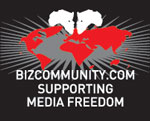As the tension between the ANC-led government and media continues to simmer over the state's threat to establish a media appeals tribunal (MAT), and other 'bullying' moves seen as an attempt to curtail freedom of expression and access to information, the Right2Know campaign this week urged the Press Council of South Africa to defend the profession from government and corporate influence.
"We believe that a diverse press - including large sections that are not owned by government or large corporations - is critical to ensuring those living in South Africa enjoy full access to information," spokesperson Mark Weinberg said in a statement.
Full rejects resolutions
Weinberg said his organisation fully rejects resolutions from the 2010 ANC National General Council proposing that Parliament investigate the establishment of MAT or any other government regulation of editorial content in the print sector.
"Private and non-profit print and online media do not use any limited national resources like broadcast media and should not have their content regulated by Government in any way," he warned.
As talks over the creation of MAT gained momentum, sending shockwaves throughout the international media fraternity, the Press Council embarked on a painstaking exercise to review and strengthen its self-regulation mechanisms to ensure excellence in journalistic practice and ethics - a move welcomed by Right2Know campaign.
If both self-regulation, regulation failed...
ANC Gauteng spokesperson Nkenke Kekana said last week if both self-regulation and regulation failed, a media tribunal will perhaps be the ideal solution.
However, Right2Know maintains that self-regulation of the media implies that publications affiliated to the Press Council should remain in control of their regulatory mechanisms - the Press Code, the press ombudsman and the press appeals tribunal.
Furthermore, Weinberg said his organisation was concerned by the commercial media's trends to reduce budgets for staffing and ongoing training of journalists. "We believe this under-resourcing of newsrooms and editorial processes is a critical factor of the increased inaccurate and superficial reporting," he noted.
Significantly 'miserable' wages
Some observers also deplore the significantly 'miserable' wages earned by experienced journalists, who continue to quit the profession in droves to seek financial glory in government and big corporate entities.
The Right2Know campaign recommends the Press Council to do the following:
- Adequately resource the complaints structures to investigate and hear complaints within the shortest possible time.
- Proactively initiate investigations and hearings into potential violations of the ethical code.
- Promote and educate readers about the Press Code by obligating the publications within its jurisdiction to print the code of ethics on a regular basis (at least monthly) and have prominent link to the code on their websites.
Expand its mandate
In addition, the campaign said, a Press Council independent of the commercial interests of their members should expand its mandate to:
- Oblige its members to invest in ongoing training of journalists and monitor the efficacy of such training.
- Oblige its members to resource editorial process with the necessary staff to ensure better reporting and the checking of facts.
- Oblige its members to increase funding for the MDDA to promote media diversity.
- Support efforts, including anti-trust laws, aimed at growing community and independent print titles.
- Support the efforts of trade unions and association of journalists to work with their employers to secure working conditions in which journalists can push the boundaries of excellence in the profession.
Lastly, Weinberg called on journalists working for other publications, including community and non-profit publications, to work to develop alternative and appropriate codes of ethics to govern their work, as well as mechanisms to ensure that they adhere to these codes.









































